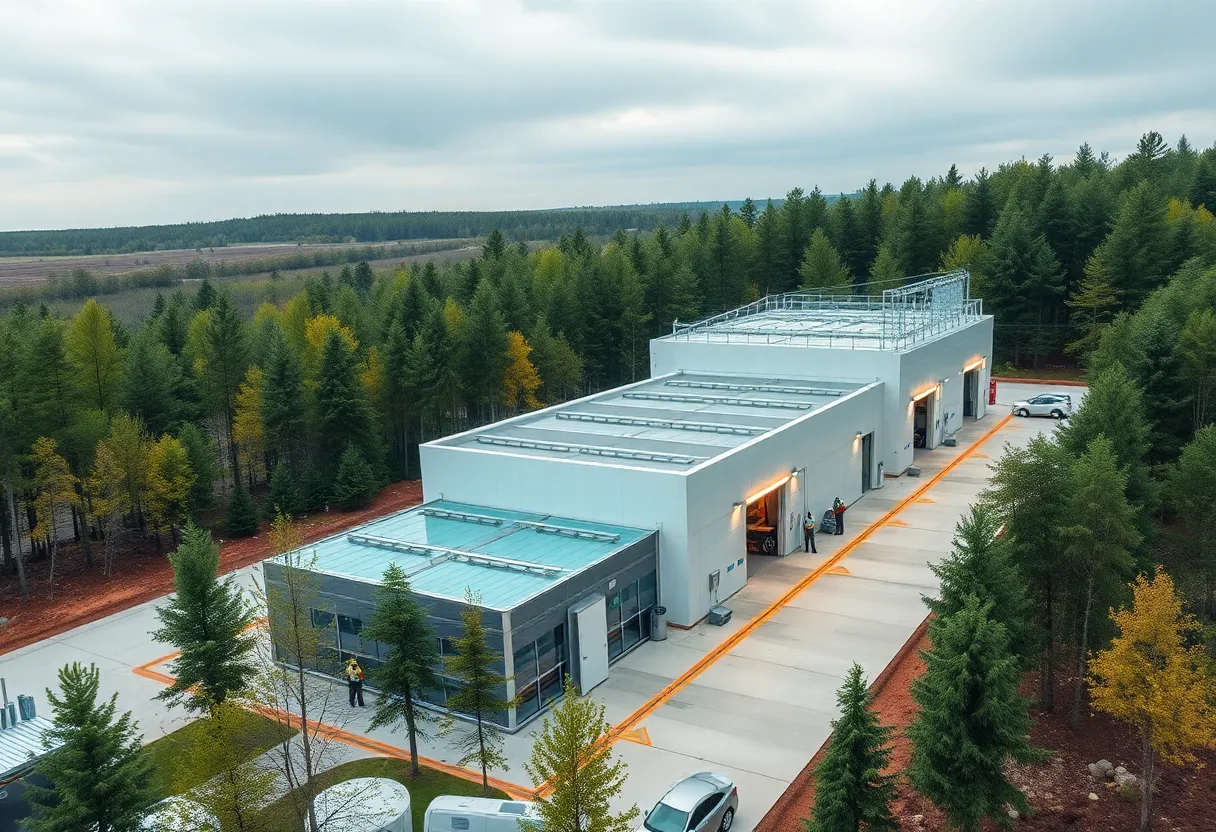

Ford's modern battery manufacturing facility in Michigan is at risk due to potential tax reforms.
Want to target the right audience? Sponsor our site and choose your specific industry to connect with a relevant audience.
Prominent brand mentions across targeted, industry-focused articles
High-visibility placements that speak directly to an engaged local audience
Guaranteed coverage that maximizes exposure and reinforces your brand presence
Interested in seeing what sponsored content looks like on our platform?
May’s Roofing & Contracting
Forwal Construction
NSC Clips
Real Internet Sales
Suited
Florida4Golf
Click the button below to sponsor our articles:
Sponsor Our ArticlesFord Motor Co. is at risk of jeopardizing its planned electric vehicle battery plant in Marshall, Michigan, which is expected to create around 1,700 jobs. Proposed federal tax reforms could eliminate key incentives necessary for the plant’s operation, particularly affecting Ford’s collaboration with Chinese manufacturer CATL. A recent House bill aims to limit tax credits for batteries produced using Chinese technology, raising concerns among lawmakers and critics about the future viability of the project and job creation in the area.
Marshall, Michigan – Ford Motor Co. is facing challenges that could jeopardize its newly planned electric vehicle battery plant in Marshall, Michigan, which aims to create approximately 1,700 jobs. The concerns arise in light of proposed federal tax reforms that may significantly affect the financial incentives necessary for the plant’s operation.
Bills recently passed by the U.S. House of Representatives propose modifications to tax credits that currently support battery manufacturing. These changes could deny tax credits for batteries produced with Chinese technology, which poses a vital issue for Ford, as the company’s new facility is set to utilize technology from the Chinese battery manufacturer CATL.
During the Mackinac Policy Conference on February 13, 2023, Ford’s Executive Chair highlighted that if U.S. lawmakers proceed with eliminating these tax credits, both the plant and the job opportunities that come with it may be “imperiled.” A vote on the proposed tax bill remains pending in the Senate, facing opposition from Democratic lawmakers and criticism from some fiscally conservative senators.
The urgency of the situation stems from the financial underpinning of the Marshall plant, which relies heavily on current federal tax incentives. The incentive package provided to Ford by Michigan was already scaled back last year due to a revised estimate of battery production, prompted by a slowdown in demand for electric vehicles (EVs). Initially, the plant was expected to produce batteries for around 400,000 vehicles; however, this target has been downscaled to approximately 230,000 due to current market conditions.
Recent scrutiny directed at Ford regarding its collaboration with the Chinese company adds another layer of complexity. Critics have raised concerns about relying on foreign technology and components in battery production. The passage of the proposed tax bill could curtail incentives that are crucial for Ford’s operational viability at the Marshall site, alongside much-needed job creation in the region.
According to Ford, the potential changes to tax policy after significant investments have already been made would create a troubling environment for business expansion. The executive emphasized that the business model for the plant was predicated on the existing tax incentives, insisting that no alterations should occur that could destabilize the projected operations.
This situation unfolds amidst President Biden’s climate bill, which was designed to support the electric vehicle supply chain and enhance consumer demand for EVs. However, recent Republican-led initiatives could phase out consumer tax credits for EVs and dismantle manufacturing credits for battery makers after 2031. Additionally, the proposals impose strict limitations on the usage of Chinese components and materials in production, potentially invalidating tax credits for manufacturers who still depend on such technology.
As the political landscape surrounding clean energy incentives continues to evolve, the fate of the Ford battery plant in Marshall stands at a critical juncture. The coming weeks will be pivotal as lawmakers deliberate on the future of these incentives amidst the growing demand for a robust domestic supply chain for electric vehicles.
News Summary Two stunning homes featured on HGTV's 'Bargain Block' are now on the market…
News Summary Phoenix Home Remodeling is redefining the home renovation experience for homeowners, offering transparency,…
News Summary Mega-Bev, a family-owned liquor store chain, is set to open its ninth location…
News Summary Mega-Bev, a popular liquor store chain, is set to relocate to a new…
News Summary Detroit has received $826 million from the American Rescue Plan Act, yet millions…
News Summary The Detroit Music Hall Center for the Performing Arts is undergoing a significant…